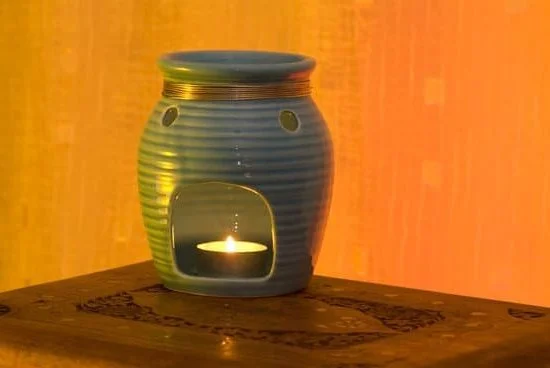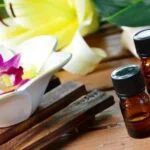Struggling to get a good night’s sleep? Many are turning to aromatherapy to sleep as a natural solution for improving their sleep quality.
Aromatherapy involves the use of essential oils and scents to promote relaxation and better overall wellness. In this article, we will explore the concept of using aromatherapy for sleep, detailing the best essential oils for inducing sleep, how to use aromatherapy for better sleep, its benefits, practical techniques and tips, addressing different sleep issues, and summarizing scientific evidence supporting its effectiveness.
Aromatherapy has been used for centuries as a holistic approach to promoting relaxation and overall health. The practice of using essential oils derived from plants can be an effective tool in improving one’s quality of sleep. Whether you suffer from insomnia, stress-related sleep issues, or simply want to enhance your bedtime routine, aromatherapy offers a natural and gentle way to improve your sleep quality.
In the following sections, we will delve into the best essential oils known for their sleep-inducing properties and provide different methods for incorporating them into your bedtime routine. We will also discuss the various benefits of using aromatherapy to improve sleep, along with offering practical tips and techniques for getting the most out of this natural remedy.
Additionally, we will explore how aromatherapy can help with specific sleep issues such as insomnia or restless leg syndrome while summarizing scientific studies that support its effectiveness. So if you’ve been searching for a natural remedy to help you get a good night’s rest, read on to discover more about aromatherapy for better sleep.
The Best Essential Oils for Aromatherapy
When it comes to using aromatherapy for sleep, choosing the right essential oils is key to achieving the desired effect. Certain essential oils are known for their sleep-inducing properties and can help promote relaxation and better sleep quality. Here are some of the best essential oils for aromatherapy that can aid in improving your sleep:
Lavender
Lavender is perhaps the most popular essential oil used for promoting relaxation and sleep. It has been widely researched and proven to have a calming effect on the nervous system, making it an excellent choice for those struggling with insomnia or anxiety-related sleep issues. The soothing aroma of lavender has been shown to lower heart rate and blood pressure, creating an optimal environment for restful sleep.
Chamomile
Chamomile is another well-known essential oil that is renowned for its calming and sedative properties. The gentle, floral scent of chamomile promotes relaxation and eases tension, making it an ideal choice for those looking to enhance their sleep experience. Chamomile essential oil can also help alleviate symptoms of insomnia, making it a popular choice for individuals with difficulty falling asleep or staying asleep through the night.
Sandalwood
Sandalwood essential oil is prized for its woody, earthy scent that is known to have a grounding and soothing effect on the mind and body. This makes it an excellent choice for promoting relaxation before bedtime. Sandalwood has been traditionally used in Ayurvedic medicine as a natural sedative, helping to calm the mind and prepare the body for restful sleep.
Incorporating these top essential oils into your aromatherapy routine can significantly improve your ability to relax and achieve better sleep. Whether used individually or blended together, these essential oils offer natural remedies for those seeking a more peaceful slumber through the power of aromatherapy.
How to Use Aromatherapy for Sleep
Diffusers
Diffusers are a popular way to use aromatherapy for sleep. These devices disperse essential oils into the air, filling your bedroom with soothing scents that can help you relax and unwind before bedtime. There are several types of diffusers available, including ultrasonic, nebulizing, and heat-based diffusers. Each type has its own set of benefits and drawbacks, so it’s important to choose one that suits your preferences and needs.
One of the most common ways to use a diffuser is to add a few drops of your chosen essential oil or blend of oils to the water reservoir and let the device run for 15-30 minutes before you go to bed. This allows the aroma to permeate the room and create a calming atmosphere conducive to sleep. Some popular essential oils for sleep that work well in diffusers include lavender, chamomile, and bergamot.
Pillow Sprays
Pillow sprays are another effective way to incorporate aromatherapy into your bedtime routine. These sprays typically contain a blend of essential oils known for their relaxing properties, such as lavender or cedarwood. To use a pillow spray, simply mist your pillow and bedsheets lightly before getting into bed. The gentle scent will linger on your bedding, creating a calming environment that can help you drift off to sleep more easily.
When using pillow sprays for aromatherapy to sleep, it’s important to avoid over-spraying and using too much product. A little goes a long way when it comes to aromatherapy, so start with a small amount and adjust as needed based on your personal preference.
Bath Oils
Taking a warm bath before bed is already known as an effective way to relax and prepare for sleep. Adding aromatherapy bath oils to this routine can enhance its benefits even further. Bath oils containing essential oils like Roman chamomile or sandalwood can promote relaxation, reduce stress levels, and help improve overall sleep quality.
To use aromatherapy bath oils for better sleep, simply add a few drops of the oil to your bathwater as you fill the tub. As you soak in the warm water, take slow deep breaths in order to inhale the calming scents released by the essential oils present in the bath oil. This will help soothe your mind and body as you prepare for restful sleep at bedtime.
Benefits of Aromatherapy for Sleep
Aromatherapy has been used for centuries as a natural way to promote relaxation, reduce stress, and improve sleep quality. The use of essential oils and scents in aromatherapy can have numerous benefits for individuals struggling with insomnia or other sleep issues. Research has shown that aromatherapy can help reduce stress, anxiety, and depression, leading to better overall mental health and improved mood.
Here are some of the key benefits of using aromatherapy for sleep:
- Reduced Stress: Certain essential oils used in aromatherapy have been found to have calming effects on the mind and body, which can help lower stress levels. Lavender oil, in particular, is known for its ability to induce relaxation and reduce anxiety.
- Improved Mood: Aromatherapy can also impact mood by promoting feelings of calmness and well-being. When used consistently as part of a bedtime routine, aromatherapy can contribute to a more positive outlook on life.
- Better Overall Health: Quality sleep is essential for overall health and well-being. By improving sleep quality through aromatherapy, individuals may experience enhanced immune function, better cognitive function, and a reduced risk of chronic health conditions.
Incorporating aromatherapy into your nightly routine can be a simple yet effective way to reap these benefits. Whether through the use of a diffuser, pillow sprays, or bath oils, the soothing scents of essential oils can create a tranquil environment conducive to a restful night’s sleep. With regular use of aromatherapy for sleep, individuals may experience these benefits firsthand.
Aromatherapy Techniques and Tips
Aromatherapy is a natural and effective way to promote relaxation and improve the quality of sleep. By using essential oils and scents, individuals can create a calming bedtime environment that encourages restful sleep. Here are some practical tips and techniques for getting the most out of aromatherapy for sleep:
- Create a Calming Bedtime Ritual: Establishing a soothing nighttime routine can signal to the body that it’s time to wind down and prepare for sleep. Incorporating aromatherapy into this ritual can further enhance its relaxing effects. For example, try diffusing lavender or chamomile essential oils while engaging in calming activities such as reading, gentle stretching, or practicing meditation.
- Blending Different Essential Oils: Experimenting with different combinations of essential oils can help individuals find the perfect scent blend for promoting better sleep. Some popular blends include mixing lavender with cedarwood or adding a touch of citrus oils like bergamot or sweet orange for a refreshing twist. Remember to dilute essential oils properly before applying them to the skin or using them in a diffuser.
- Use Aromatherapy in Various Ways: In addition to using an essential oil diffuser, there are other ways to incorporate aromatherapy into your nightly routine. Consider spraying your pillow with a lavender-scented mist, adding a few drops of essential oil to your bath water, or applying diluted oil to pulse points such as the wrists and neck before bedtime.
By implementing these techniques and tips, individuals can harness the power of aromatherapy to create a peaceful and comforting atmosphere that promotes better sleep. Whether it’s through establishing a calming bedtime ritual, experimenting with different essential oil blends, or using various aromatherapy methods, there are plenty of ways to customize an aromatherapy routine that caters to specific preferences and needs.
Aromatherapy for Different Sleep Issues
Aromatherapy has been used for centuries as a natural remedy for various health concerns, including sleep issues such as insomnia, sleep apnea, and restless leg syndrome. The use of essential oils and scents to promote relaxation and better sleep quality has gained popularity in recent years, with many individuals turning to aromatherapy as an alternative or complementary treatment for their sleep problems.
One of the key benefits of using aromatherapy for sleep issues is its ability to reduce stress and anxiety, which are common factors that contribute to difficulties falling asleep or staying asleep. Certain essential oils, such as lavender, chamomile, and sandalwood, have been shown to have calming and sedative properties that can help improve the overall quality of sleep.
For individuals suffering from insomnia, incorporating aromatherapy into their bedtime routine may provide a natural and gentle way to promote relaxation and ease into a restful night’s sleep.
In the case of sleep apnea, where interrupted breathing during sleep can lead to poor sleep quality and daytime fatigue, certain essential oils like eucalyptus and peppermint may help open up the airways and improve breathing. While not a replacement for medical treatment or therapy prescribed by healthcare professionals, aromatherapy can be used as part of a holistic approach to managing sleep apnea symptoms and improving overall well-being.
Additionally, restless leg syndrome, characterized by uncomfortable sensations in the legs that worsen at night and can disrupt sleep, may be alleviated through the use of calming essential oils known for their muscle-relaxing properties when applied through massage or diffusion.
Research on the effects of aromatherapy for specific sleep issues continues to grow, with several studies suggesting positive outcomes in terms of improved sleep duration and quality for those who incorporate aromatherapy into their bedtime routine regularly. As with any natural remedy or alternative treatment approach, it is important for individuals experiencing sleep issues to consult with healthcare professionals before using aromatherapy as part of their overall management plan.
| Key Benefits | Common Essential Oils |
|---|---|
| Reduce stress and anxiety | Lavender |
| Improve breathing | Eucalyptus |
| Relieve muscle discomfort | Sandalwood |
Research and Evidence on Aromatherapy for Sleep
Numerous scientific studies have explored the potential benefits of using aromatherapy to improve sleep quality. One study published in the Journal of Alternative and Complementary Medicine found that lavender essential oil was effective in improving sleep quality in individuals with insomnia. The study showed that participants who used lavender essential oil experienced a significant improvement in their overall sleep patterns compared to those who did not use the oil.
Another study, conducted at the University of Minnesota, focused on the effects of chamomile essential oil on sleep. The researchers found that inhaling chamomile oil vapors led to a decrease in symptoms of anxiety and improved overall sleep quality. These findings suggest that aromatherapy with chamomile essential oil may be beneficial for enhancing relaxation and promoting better sleep.
In addition, a meta-analysis published in the International Journal of Nursing Practice examined several different studies on the use of aromatherapy for sleep. The analysis revealed consistent evidence supporting the positive effects of aromatherapy on sleep quality, particularly when using essential oils such as lavender, chamomile, and sandalwood. These studies provide valuable insights into the effectiveness of aromatherapy for improving sleep and offer promising results for those seeking natural solutions to sleep issues.
| Study | Findings |
|---|---|
| Journal of Alternative and Complementary Medicine | Lavender essential oil improved sleep quality in individuals with insomnia |
| University of Minnesota Study | Chamomile essential oil vapors decreased anxiety symptoms and improved overall sleep quality |
| International Journal of Nursing Practice Meta-Analysis | Consistent evidence supporting positive effects of aromatherapy on sleep quality, especially with lavender, chamomile, and sandalwood oils |
Conclusion and Recommendations
In conclusion, incorporating aromatherapy into your sleep routine can have numerous benefits for promoting relaxation and improving the quality of your sleep. The use of essential oils such as lavender, chamomile, and sandalwood has been shown to have sleep-inducing properties that can help reduce stress, improve mood, and contribute to better overall health. By using methods such as diffusers, pillow sprays, and bath oils, individuals can create a calming bedtime ritual that enhances their sleep experience.
It is important to note that while aromatherapy can be beneficial for improving sleep quality, it may not be a standalone solution for more serious sleep issues such as insomnia or sleep apnea. However, when used in combination with other strategies such as maintaining a consistent sleep schedule and creating a conducive sleep environment, aromatherapy can be a valuable complement to improving overall sleep hygiene.
Incorporating aromatherapy into your bedtime routine does not have to be complicated. Whether it’s through diffusing essential oils in the bedroom or adding a few drops to a relaxing bath before bed, finding the right method for you can make a significant difference in your overall sleep experience. With its soothing and calming effects, using aromatherapy for sleep is definitely worth considering as part of a holistic approach to achieving better rest and relaxation.

Are you looking for a natural way to improve your health and wellbeing?
If so, aromatherapy may be the answer for you.





